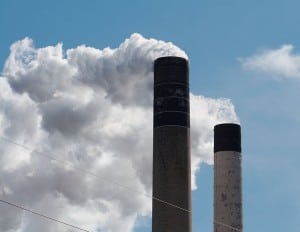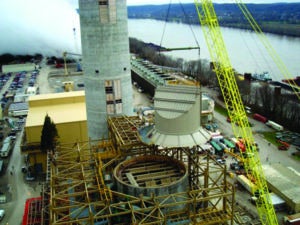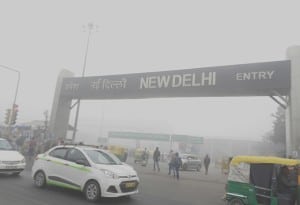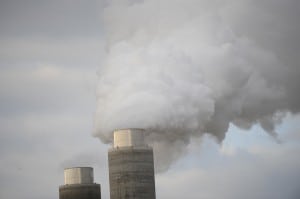NOx
-
News
EPA’s Final Regional Haze Guidance Highlights State Discretion, Flexibility
New guidance issued by the Environmental Protection Agency (EPA) on Aug. 20 to help states prepare for the second implementation period of the federal regional haze program puts emphasis on “discretion and flexibilities” they can use to comply with long-standing mandates to protect visibility in federal areas. While it is not binding, the EPA’s […]
Tagged in: -
History
A Brief History of GE Gas Turbines
July marks two important milestones that set gas-fired generation on its course to becoming a dominant form of power generation: commercial operation of the world’s first industrial gas turbine in Neuchâtel, Switzerland, in 1939, and commercial operation of the first gas turbine in the U.S. used to generate electric power—a 3.5-MW General Electric (GE) unit […]
Tagged in:- Alstom
- GT24
- H-class
- Belle Isle Station
- France
- GT26 HE
- renewables
- Neuchâtel
- Malaysia
- turbine inlet temperature
- steam turbines
- PURPA
- DLN
- history
- TIT
- Blackout
- BBC
- EDF
- H-class system
- aeroderivatives
- HRSGs
- Baglan Bay
- F-Class
- distributed generation
- LM
- gas turbines
- market competition
- UK
- Frame machines
- NOx
- G-class
- GE Gas Power
- ABB
- J-class
- condensers
- E-class
- GE
- GT13E
- GT26
- B-class
-
News
Power Plant Emissions Down Substantially in U.S. Since 1990
Power plant SO2 and NOx emissions have decreased 92% and 84%, respectively, since Congress passed major amendments to the Clean Air Act in 1990. Meanwhile, mercury air emissions from power plants have decreased 90% since 2000, as federal limits on mercury and other hazardous air pollutants from coal-fired power plants went into effect in 2015. […]
-
Gas
The POWER Interview: GE Unleashing a Hydrogen Gas Power Future
Since the 1940s, when General Electric (GE), launched its gas turbine operations, the company has pioneered and commercialized a lengthy list of gas turbine technologies, large and small. As the decarbonization movement gains pace and more renewables flood the landscape, the company’s gas turbines have taken on new crucial roles to provide dispatchability and flexibility. […]
-
News
EPA to Retain Primary NAAQS for Sulfur Dioxide
The Environmental Protection Agency (EPA) will refrain from amending the National Ambient Air Quality Standards (NAAQS) for sulfur dioxide (SO2), retaining a 2010 rule, which it said adequately protects public health. The agency on Feb. 25 said in a notice that a periodically required review of the primary—or health-based—rule concluded no revision was necessary. The […]
-
Environmental
The Impact of Environmental Regulations on Power Generation
For many years, air pollution control (APC) rules and regulations have governed the design and economics of the world’s power generation fleet. These rules have had a tremendous impact, improving air quality
-
Coal
India’s Power Industry Struggles to Solve Pollution Problems
In a bid to tamp down pollution, India’s government in December 2015 notified the country’s coal generators they would need to meet—for the first time—new emissions limits for nitrogen oxides (NOx), sulfur dioxide (SO2), and mercury, as well as tightened limits for particulate matter (PM) and water consumption. The gazetted notification gave new plants until […]
-
Legal & Regulatory
Eight States Sue EPA, Arguing Ozone Transport Region Decision Is “Unlawful”
Eight northeastern states are again suing the Environmental Protection Agency (EPA) to force the agency to slash emissions of nitrogen oxides (NOx) and volatile organic compounds (VOCs) blowing in from power plants and other sources in nine “upwind” Midwestern and southern states. The Ozone Transport Region, which was established by Congress under Section 184 of […]
Tagged in: -
Legal & Regulatory
IEA: World’s Power Sector Trails Others in Air Emissions
The world’s power sector last year emitted a third of global sulfur dioxide (SO2) emissions, 14% of nitrogen oxides (NOx), and 5% of total particulate emissions (PM2.5), but those emission values have fallen drastically over the last decade even though coal power generation has seen a surge, the International Energy Agency (IEA) said in a […]
-
Press Releases
Fuel Tech Licenses SNCR Technology to India’s ISGEC Heavy Engineering Ltd.
WARRENVILLE, Ill.–(BUSINESS WIRE)–Fuel Tech, Inc. (NASDAQ: FTEK), a world leader in advanced engineering solutions for the optimization of combustion systems and emissions control in utility and industrial applications, today announced the signing of an exclusive agreement under which Fuel Tech has licensed its Selective Non-Catalytic Reduction (SNCR) technology to ISGEC Heavy Engineering Ltd. (ISGEC), one […]








